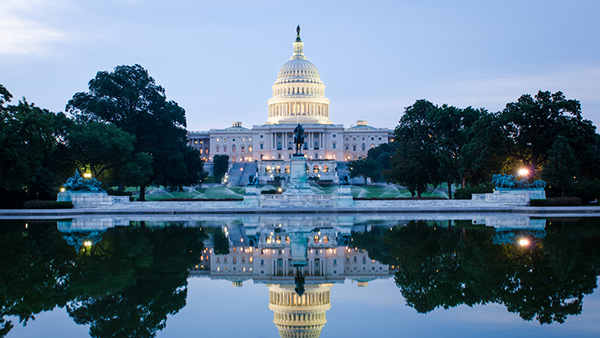On April 25, 2019, Governor Eric Holcomb signed HB 1347 into law, giving much-deserved relief to rental property owners in Indiana. Rep.Woody Burton (R-Whiteland) authored the bill and championed its cause, being a Realtor® and rental property owner himself.
The bill received some push back during its committee meetings in the State Senate but passed both Republican-controlled chambers of the Indiana General Assembly with an overwhelming majority. HB 1347 had bipartisan sponsors and support during its entire journey to becoming a statute.
Statewide legislation was needed after a series of municipal ordinances were passed in at least 13 municipalities, all allowing for municipally owned and operated utility companies to assign delinquent utility accounts to the owner of a property. The intention of these ordinances was to bolster the municipalities financially by going after what they saw as an ‘easier target’ in rental property owners, even though the delinquent accounts were opened and abandoned by their tenants.
The Indiana State Real Estate Investors Association (INStateREIA) was formed as a non-profit association where local and regional real estate investment groups can stand together as a centralized, strategic association to champion the issues important to investors across the entire state. As a natural extension of that mission, INStateREIA hired Jeff Jinks Law as their lobbying firm at the Statehouse.
It started in the small town of Bargersville, Ind.; the town’s council passed an ordinance, which allowed their municipally owned and operated utility company to demand payment from property owners when their tenants became delinquent. The rental property owners were irate with the ordinance; that’s when property owner Marsha Feldhake Isbell contacted INStateREIA and Jeff Jinks Law.
Two main factors made this ordinance especially troublesome. First, many of the rental property owners, including Isbell, were not residents of Bargersville, and thus could not vote for or against those town council members, whose decision would seriously affect their business and livelihood. Second, most of the town council members were also on the board of the municipal utility, creating a clear conflict of interest.
The legislation is intended to prohibit the utilities from coming after property owners, in regards to the delinquent accounts. Many towns and cities across Indiana started passing local ordinances, hindering property owners. Not only was this a conflict of interest, but many of these municipal utilities serve customers outside of the jurisdiction or voting ability of said councils. A lack of democratic process, combined with the absence of oversight from the Indiana Utility Regulatory Commission, created a vacuum of misdirected collection attempts on property owners. Note that, municipally owned and operated utilities, can opt-out of the IURC regulation and almost all have opted-out.
Jeff Jinks Law contacted Rep. Burton, the State Representative for much of Johnson County, where Bargersville is located, and had spoken to Isbell on a few prior occasions. Rep. Burton agreed to allowed Jeff Jinks Law to help write and support a bill for the 2019 legislative session.
In a major show of solidarity and member commitment, INStateREIA members from across the state traveled to the Indiana Statehouse in Indianapolis on several occasions. Rep. Burton and the Jeff Jinks Law’s Government Relations team testified during House and Senate committee hearings and were able to physically point to those members that would be positively affected by this bill’s passage.
Municipalities are, unfortunately, pushing back against the new law. Some are stating that they interpret the law differently, will need more time to implement it, or are completely ignoring it altogether. As is normal with all new laws, the implementation can be cumbersome and may need to be litigated to correct any misinterpretation.
To give some perspective on Indiana’s single-family rental market, rental property owners own over 377,000 properties, which contributes $652,050,592 in yearly tax revenue. While some rental property owners are benefiting from the much-deserved relief that HB 1347 brought them, others, unfortunately, may have a battle with local towns or city councils who are pushing back against the new law.
Guest post submitted by Jeffrey J. Jinks, Esq. and Timothy B. Hawkins II, JD























0 Comments